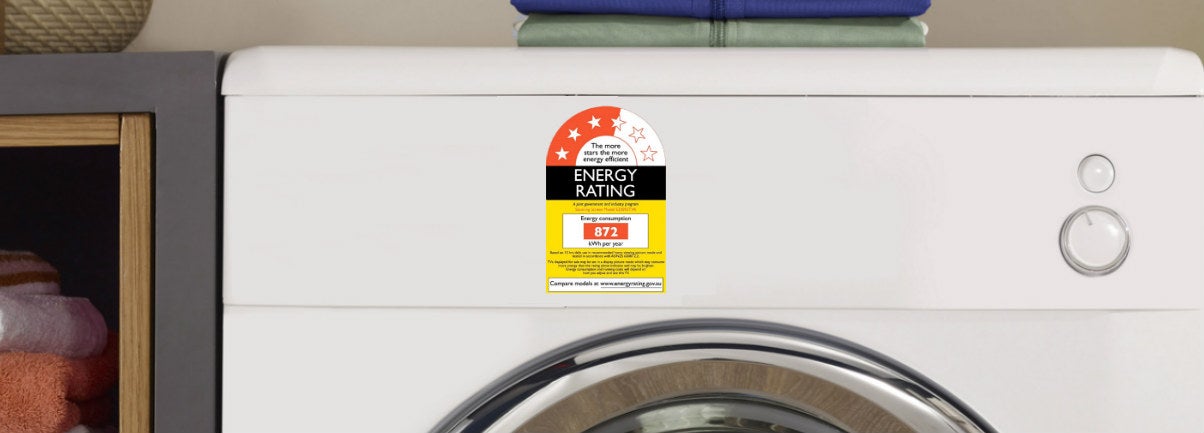Register Your Interest

Register your interest

As you begin to consider appliances when building your new home, or if you are considering updated appliances for your current home, it’s always beneficial to understand what to consider when looking at energy efficient appliances.
According to the Australian Government's Environmentally Sustainable Homes website household appliances account for an average of 25% of total residential energy consumption across Australia. Fridges, freezers, clothes dryers, televisions, and home entertainment equipment are among the many contributors to mounting energy expenses, and with many of these appliances last for up to ten years when buying new appliances or replacing old ones, it is a good exercise to review each appliance, understand its features, and be able to make an informed decision to reduce energy consumption and allied costs.
With so many choices available in the market, how do we judge which one is right for our needs and ensure we buy the most energy efficient appliances for our homes? Here is a quick guide:
Check the energy labels
The government’s Equipment Energy Efficiency Program provides two types of labels for large appliances - energy consumption labels and star rating labels, which are applicable to air conditioners, televisions, computer monitors, dishwashers, refrigerators, freezers, washing machines and dryers.
The energy consumption labels show the annual consumption under standard test conditions, while the star ratings help you to compare the energy efficiency of similar models with the same size and ability.
What is the star rating?
The star rating is about energy efficiency, or how much energy a product uses in comparison to similar products.
The more stars a product receives means the product is more efficient, so the more stars shown on the Energy Rating Label, the less energy the product will use and the more money you will save on your energy bills. Most products are given between 1 and 6 stars. Technology keeps getting better as does energy efficiency.
What does energy consumption mean?
Energy consumption is how much electricity a model uses each year, in kilowatt hours (kWh),
It's based on standardised testing – required by law and conducted in line with the official Australian and New Zealand Standards.
These tests are based on how most people use their appliances, but each individual is different, so the actual amount of energy your appliance uses may be different to the label.
You can use the energy consumption number to compare any model – no matter their size or features. You can check both these ratings and compare appliances and their brands using the Energy rating calculator before you make your decision.
Is the size, right?
Larger models with a similar star rating as the smaller model use comparatively more energy, thereby increasing running costs. When selecting an appliance, consider the lifetime cost and not the continuous operating costs as this might quickly exceed the original purchase price.
Is it smart?
We are currently living in the world of smart appliances. Buying smart appliances for your home provides more control in your hands while helping you be more energy efficient. Many smart devices include sleep or auto-off features that ensure they turn off automatically, helping to optimise energy usage while maintaining performance. Smart appliances can also be connected to smart devices which help you control their usage remotely, giving you the power to turn them off when not in use. You can also connect your smart appliances to smart metres or home energy management systems to help monitor their usage and energy costs, helping you plan your use accordingly.
Understanding the features
Your appliance's energy consumption is also influenced by the functions it includes. While some built-in features can help save energy, they can also be a disadvantage. For instance, an LED or OLED television is more energy efficient as they use screens with backlighting and can provide good viewing experiences even with reduced brightness while a fridge with an icemaker may use more energy than other normal models. It is always a good option to consider the various features and their benefit to you and select appliances that help you save on energy costs.
So, by using a few simple tools to understand your appliance's energy ratings prior to purchasing will help you save money now and into the future.

Register your interest